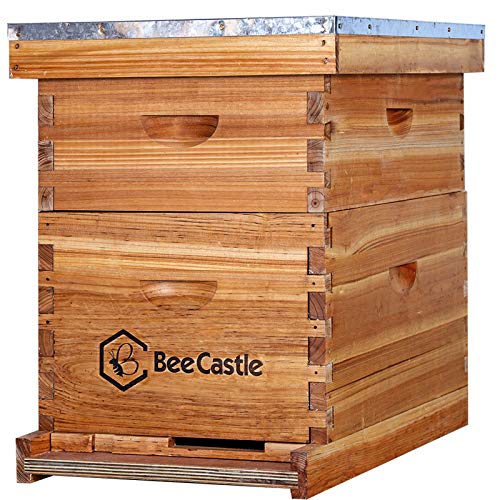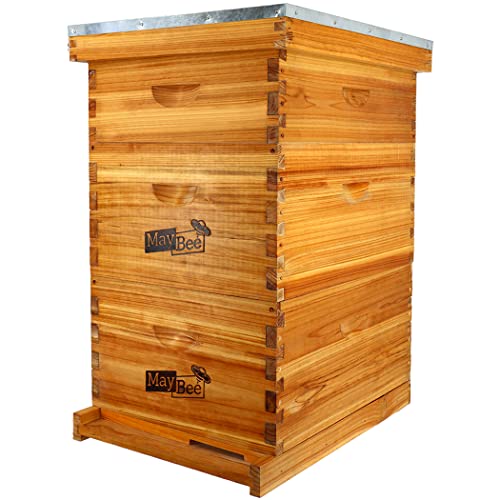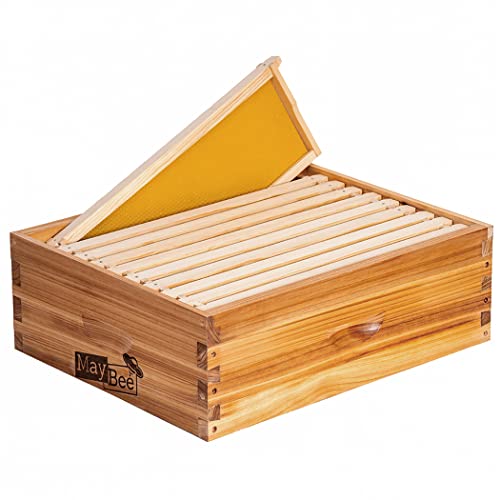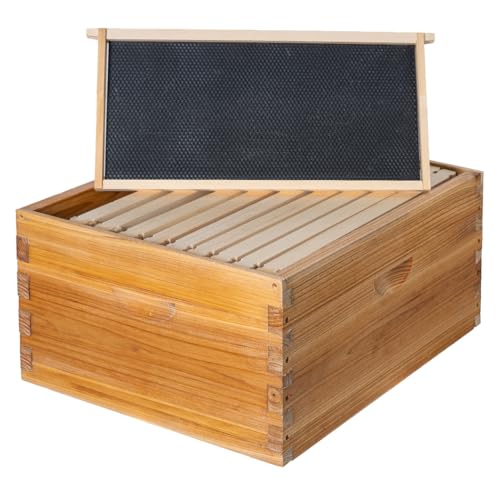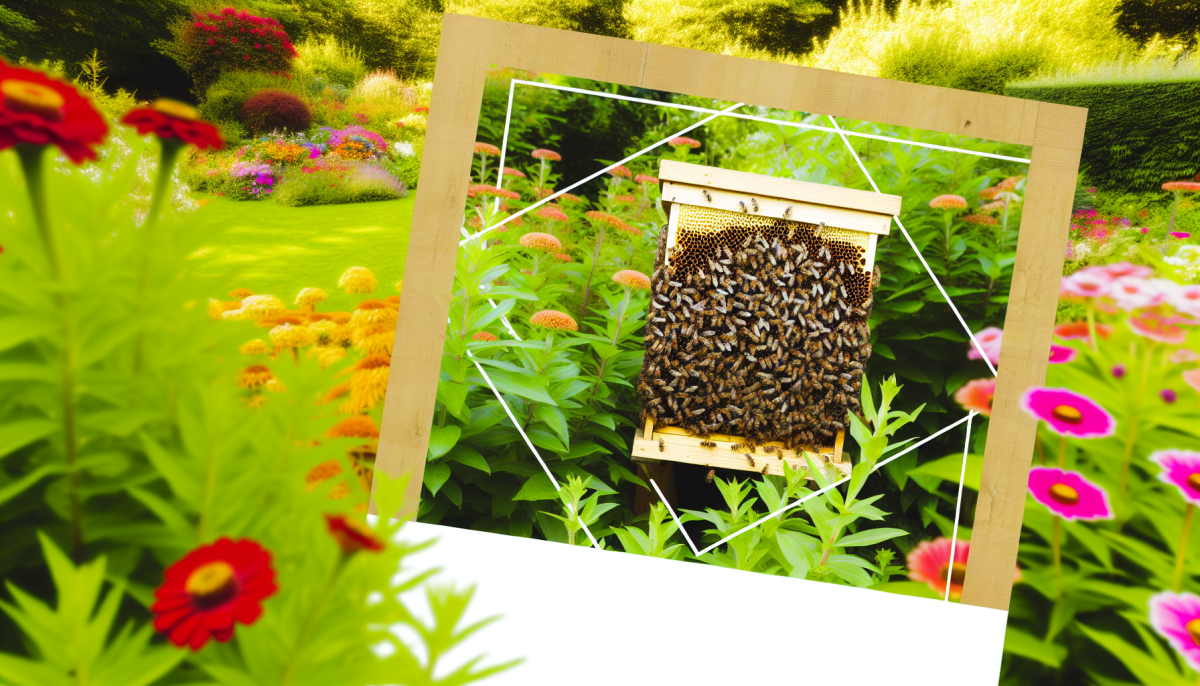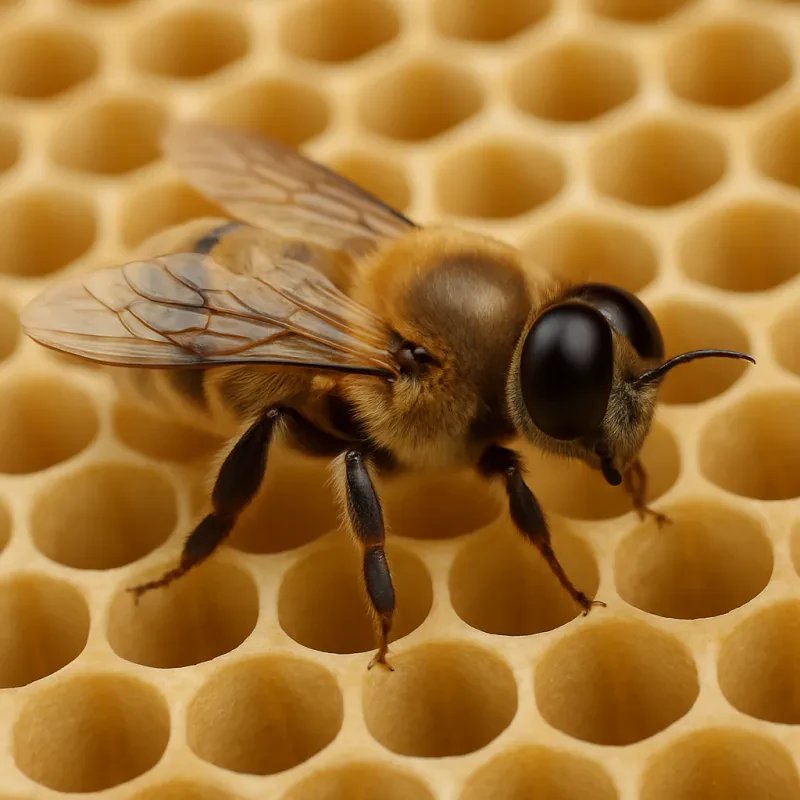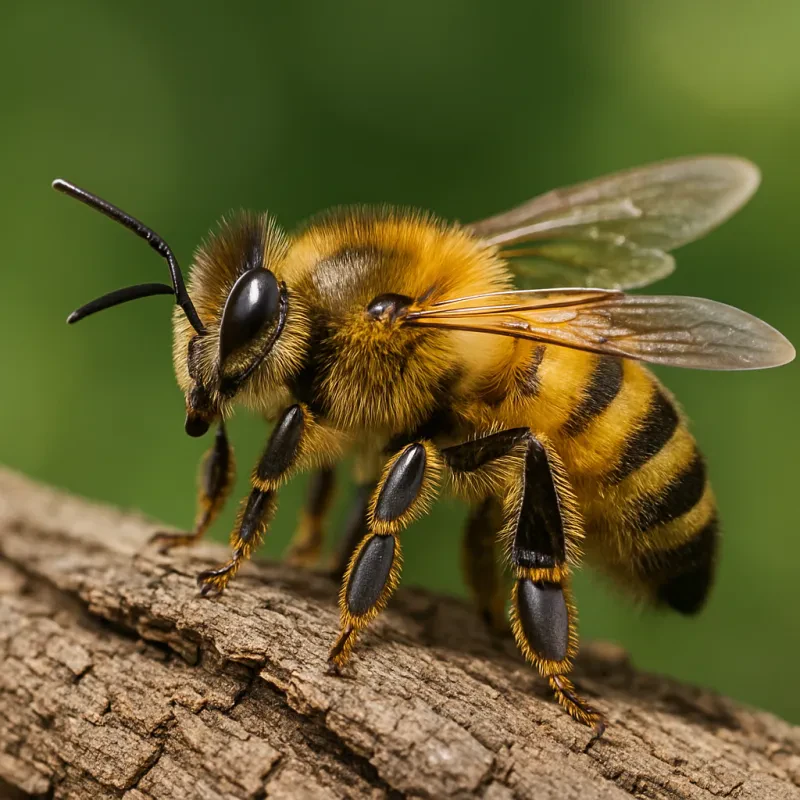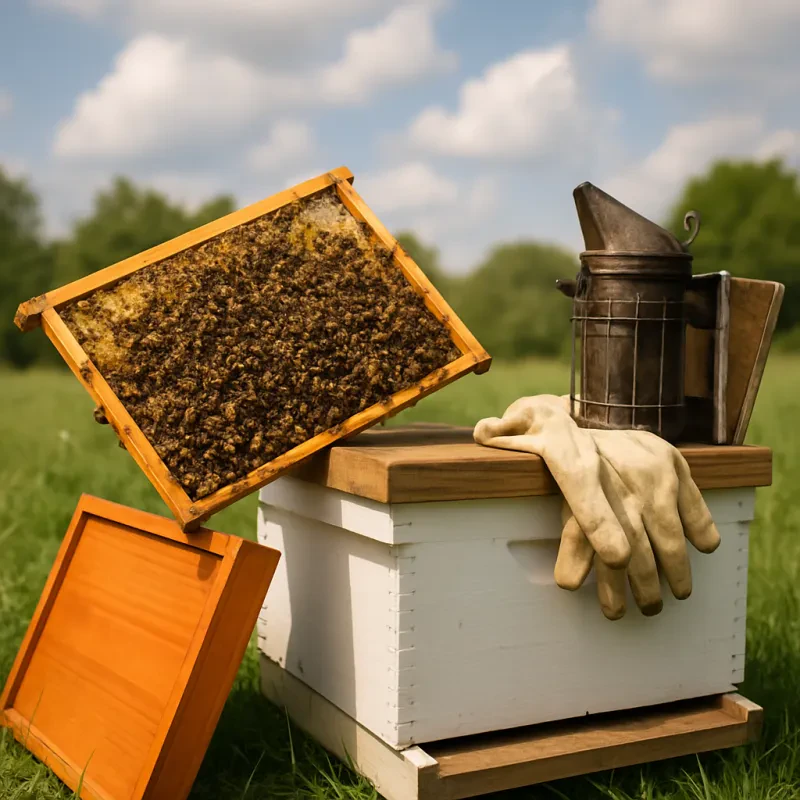The Essential Guide to Garden Bee Hives: Enhancing Biodiversity and Yield
In today's eco-conscious world, the importance of bees in our gardens cannot be overstated. As the backbone of pollination, these industrious insects play a pivotal role in the health of our planet's ecosystems. This guide delves into the concept of garden bee hives, their significance, and the manifold benefits they offer to both the environment and garden enthusiasts.
From selecting the right type of hive for your garden to understanding the behavior of bees, this comprehensive guide provides invaluable insights into creating a thriving bee-friendly environment. By incorporating garden bee hives into your landscape, you can boost biodiversity, increase crop yields, and contribute to overall sustainability. Learn how to set up and maintain bee hives in your garden, as well as tips on attracting and supporting these essential pollinators. Embrace the buzz of life that garden bees bring and reap the rewards of a flourishing green space filled with vitality and abundance.
Understanding Garden Bee Hives
Garden bee hives are small-scale hives designed for installation in personal or community gardens. Unlike commercial beekeeping operations, these hives focus on sustainability and supporting local ecosystems rather than honey production.
Garden bee hives are a valuable addition to any garden, providing essential pollination services that benefit both the plants and the environment as a whole. By attracting bees to your garden, you can help improve the health of your plants and increase their productivity. Setting up and maintaining a bee hive in your garden may seem daunting at first, but with proper guidance and resources, it can be a rewarding experience.
To attract bees to your garden, start by planting diverse native flowering plants that provide nectar and pollen throughout the growing season. Bees are attracted to vibrant colors like blues, purples, yellows, and whites, so including a variety of flowers in these hues can help draw them in. Providing fresh water sources such as shallow dishes or birdbaths is also important for bees to stay hydrated while they visit your garden.
Once you have attracted bees to your garden, consider setting up a bee hive to provide them with shelter and encourage them to stay. There are various types of bee hives available for personal or community gardens, including top-bar hives, Langstroth hives, and Warre hives. Choose a hive design that suits your space and needs best.
Taking care of a garden bee hive involves regular maintenance tasks such as monitoring honey production levels (if applicable), checking for signs of disease or pests, and ensuring that the bees have enough food sources nearby. Proper education on beekeeping practices is essential to ensure the health of both the bees and your garden ecosystem.
By embracing the presence of garden bees through responsible beekeeping practices, you can create a thriving green space that benefits from increased pollination rates resulting in higher crop yields overall sustainability.
Remember: The buzz of life that these tiny creatures bring truly enhances the vitality and abundance of your garden!
The Role of Bees in Pollination
Bees are nature's most efficient pollinators. They transfer pollen from one flower to another, facilitating the growth of fruits, vegetables, and seeds. This process not only ensures the survival of plants but also enhances the diversity and productivity of gardens.
Bees play a vital role in maintaining biodiversity and ecosystem health by pollinating approximately 75% of flowering plants worldwide. Without bees, many plant species would struggle to reproduce, leading to a decline in food sources for humans and other animals. It is crucial to protect bee populations and support their work as essential pollinators in our environment.
By promoting bee-friendly practices, such as planting diverse native flowers, avoiding the use of pesticides harmful to bees, and providing habitats like bee hotels or nesting sites, you can contribute to creating a sustainable and thriving ecosystem for these important creatures. Joining efforts with local conservation groups or participating in community initiatives focused on preserving bee populations can also make a significant impact on supporting these valuable pollinators.
Embracing the role of bees in pollination not only benefits individual gardens but also contributes to the broader effort of protecting biodiversity and ensuring the overall well-being of ecosystems around the world. By fostering a harmonious relationship with bees through responsible stewardship practices, we can help preserve their irreplaceable contribution to our natural world.
The Importance of Garden Bee Hives
Integrating bee hives into gardens is more than just a trend; it's a critical step towards environmental stewardship and sustainability.
Garden bee hives provide a safe haven for bees to thrive and carry out their essential pollination duties. By hosting a hive in your garden, you are actively creating a supportive environment for these important pollinators to live and work. Additionally, having bees present can increase the yield of your garden crops through enhanced pollination, leading to better harvests and healthier plants.
Furthermore, maintaining garden bee hives fosters a deeper connection with nature and allows us to appreciate the intricate relationship between plants and bees. Observing these industrious insects at work can be both educational and inspiring, offering insights into the vital role they play in sustaining ecosystems.
Incorporating garden bee hives into our outdoor spaces is not just beneficial for the environment; it also brings joy and beauty to our surroundings. The gentle hum of bees going about their daily tasks adds an element of vibrancy to any garden setting, enhancing its natural ambiance. By welcoming these buzzing creatures into our gardens, we invite biodiversity and vitality into our lives while supporting the delicate balance of nature that sustains us all.
Biodiversity Boost
Garden bee hives contribute to increased biodiversity. Bees pollinate a wide range of plants, which leads to healthier and more resilient ecosystems. This diversity also attracts other beneficial insects and wildlife, creating a more balanced and productive garden.
Bees are not only essential for pollination but also play a crucial role in the food chain, providing sustenance for various other organisms. Their presence in the garden contributes to increased crop yields and healthier plants, as they help ensure successful fertilization. Furthermore, bees serve as indicators of environmental health; their decline can signal broader ecological issues that may be affecting our ecosystems. Therefore, by creating bee-friendly spaces in our gardens and supporting these important pollinators, we are not only enriching our immediate surroundings but also contributing to the greater well-being of the planet.
Enhanced Garden Yield
With bees efficiently pollinating plants, gardeners can enjoy a significant boost in fruit and vegetable yields. This increase not only maximizes the use of garden space but also contributes to food security.
Additionally, the presence of bees in a garden can lead to better quality produce as well. The process of pollination leads to more uniform and well-formed fruits and vegetables, making them more visually appealing and nutritious. This is especially important for home gardeners who rely on their own produce for sustenance or sale.
Furthermore, by cultivating a bee-friendly environment in our gardens, we are also fostering biodiversity. Bees play a crucial role in maintaining the balance of ecosystems by pollinating a wide variety of plants, which supports other wildlife such as birds and insects that depend on these plants for food and shelter.
In essence, supporting bees in our gardens not only benefits us directly through increased yields and biodiversity but also helps to preserve the delicate intricacies of the natural world that sustain life on Earth. By recognizing and valuing the role of bees as vital pollinators, we can take simple yet impactful steps towards creating sustainable habitats that benefit both ourselves and future generations.
Environmental Impact
By hosting a bee hive, gardeners play a part in conserving bee populations. Given the alarming decline in bee numbers worldwide due to pesticides, habitat loss, and climate change, garden bee hives offer a safe haven for these essential pollinators.
Benefits of Garden Bee Hives
Embracing garden bee hives comes with a plethora of advantages for both the environment and garden enthusiasts.
For the Environment
- Pollination Support: Garden bee hives ensure the continuation of pollination, supporting the growth of local flora and contributing to the overall health of the environment.
- Biodiversity Conservation: By providing bees with a habitat, we help maintain and enhance biodiversity within ecosystems.
For Gardeners
- Increased Productivity: Gardens with bee hives see a noticeable increase in fruit and vegetable production, thanks to efficient pollination.
- Educational Opportunities: Bee hives serve as an excellent educational tool for communities and schools, offering insights into the life cycle of bees and the importance of pollination.
- Personal Fulfillment: There's a unique joy in contributing to the conservation of bees and watching your garden flourish as a result. It fosters a deeper connection with nature and promotes mindfulness and relaxation.
Getting Started with Your Garden Bee Hive
Before diving into beekeeping, it's crucial to research and understand the needs of bees and the legal requirements in your area. Consider reaching out to local beekeeping clubs or societies for guidance and support.
Being well-informed is key to creating a successful and sustainable bee garden. Start by choosing the right location for your hive, ensuring it has access to sunlight, water sources, and natural foliage for bees to forage on. Invest in high-quality equipment and protective gear to ensure your safety while working with the bees.
Next, acquire a healthy colony of bees from a reputable supplier or through local beekeeping associations. Introduce them to their new hive carefully and provide them with food sources like sugar syrup until they can establish their own pollen and nectar collection.
Regularly inspect the hive to monitor the health of your colony and address any issues promptly. Stay connected with other beekeepers in your community to share knowledge, experiences, and resources that can help you grow as a beekeeper.
By embarking on this journey of nurturing bees in your garden, you not only contribute positively to the environment but also enrich your life with meaningful connections and fulfilling experiences. Get ready to embark on an exciting adventure filled with learning opportunities and sweet rewards!
Garden bee hives are more than just a means to enhance garden productivity; they're a vital contribution to the preservation of our planet's ecosystems. By understanding the importance and benefits of garden bee hives, gardeners can take a proactive step towards environmental sustainability and the conservation of bee populations. Embrace the joy and fulfillment that comes from contributing to a greener, more productive world.
